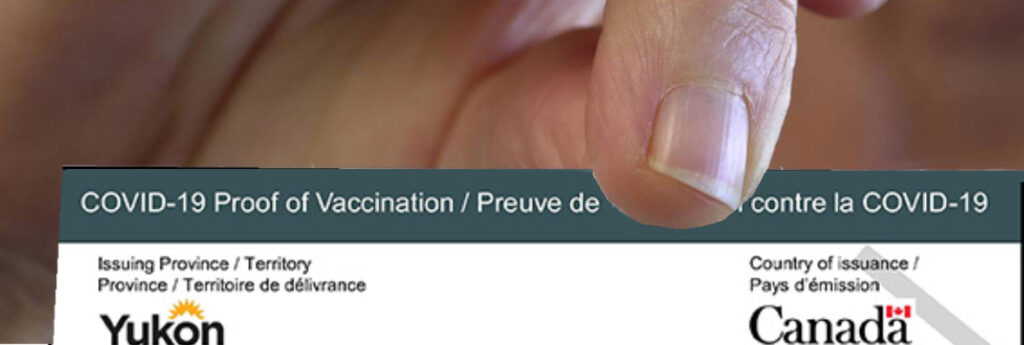As of Nov. 30, people who want to travel by air or rail in Canada must be vaccinated, the federal government says. Moreover, the new updated rules specifically state that a negative COVID-19 molecular test will no longer be accepted as an alternative to vaccination with the feds warning, “If travellers have not already started the vaccination process, or do not start very soon, they will not be eligible to travel starting Nov. 30.”
The new “final orders” from the agency require travellers to show proof of full vaccination (effective Oct. 30), albeit able to produce a valid negative COVID-19 molecular test during a transitional period until Nov. 29.
“Vaccination is one of the most effective ways to reduce the further spread of COVID-19 in Canada. Requiring travellers and employees to be vaccinated ensures that everyone who travels and works in the transportation industry will protect each other and keep Canadians safe,” says transport minister Omar Alghabra.
He added, “We know that Canadians who have not been vaccinated are now thinking about getting vaccinated and hopefully they will go out and (do so),” and noted that the testing mandate is still a step up from existing policies for domestic air travel, which requires neither a vaccine nor a negative test.
The protocols now in effect include and apply to:
• Air passengers flying on domestic, transborder, or international flights departing from certain airports in Canada
• Rail passengers on VIA Rail and Rocky Mountaineer trains
• Airlines and railways will be responsible for confirming the vaccination status of travellers
• In the aviation mode, the Canadian Air Transport Security Authority (CATSA) will also support operators by confirming vaccination status
• There will be very few exceptions for emergencies and special accommodations for designated remote communities so residents can continue to access essential services.
Requirements effective Nov. 30:
• A negative COVID-19 molecular test will no longer be accepted as an alternative to vaccination
• Very limited exemptions will apply
• There will be transitional measures for unvaccinated foreign nationals who normally reside outside of Canada and who entered Canada prior to Oct. 30. Until Feb. 28, they will be able to take a flight for the purpose of departing Canada if they show proof of a valid COVID-19 molecular test at the time of travel.
Transport Canada says additional information will be provided in the coming weeks and the government adds it will continue to engage with key stakeholders, employers, airlines, and railways, bargaining agents, Indigenous Peoples, local authorities, and provinces and territories to support the implementation of the vaccination requirement.
QUICK FACTS
• There will be a short transition period during which travellers not fully vaccinated will be able to travel if they can show a negative COVID-19 molecular test within 72 hours of travel. A positive COVID-19 molecular test will also be accepted if at least 14 days, but no more than 180 days, have elapsed since the test was conducted and the traveller is symptom free. This transition period will end on Nov. 29, 2021. Starting on Nov. 30, travellers must be fully vaccinated.
• Unvaccinated travellers who test positive for COVID-19 during their travel will not be able to travel onwards, or return to their point of departure, until they have completed 14 days of isolation. The traveller is responsible for their own isolation costs (accommodation and meals) except for very limited exceptions. Unvaccinated travellers should have a plan in advance of their travel in case they test positive during their journey.
• Travellers can use a proof of vaccination credential issued by their province or territory local health facility where their vaccinations have been recorded, or from their country of vaccination as long as it is a Government of Canada-approved vaccine.
• Travellers are strongly encouraged to use the new standardized Canadian proof of vaccination but can also continue to use their provincial proof of vaccination if their province is not yet issuing the standardized proof of vaccination certification, or documentation provided from their local health care facility with the necessary vaccination information. To learn more about the Canadian COVID-19 proof of vaccination and how to get it, click: https://www.Canada.ca/vaccine-proof
• With respect to provincial or territorial requirements, travellers may be subject to further measures taken by provinces or territories in order to prevent the spread of COVID-19. It is the traveller’s responsibility to be familiar with potential restrictions regarding their final destination.

